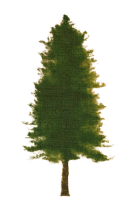
James Smith
Pennsylvania
“If the British administration should determine by force to effect a submission to the late arbitrary acts of the British Parliament, in such a situation, we hold it our indispensable duty to resist such force, and at every hazard to defend the rights and liberties of America.”
So uttered James Smith at the Pennsylvania state convention in 1775. This was not a taunting of the mother country, but a statement of reality that England and its colonies were on a collision course due to Parliament’s unjust actions. In 1774, Mr. Smith had recognized the relationship between the colonies and the crown was strained due to the taxes being levied by Parliament. He advocated for a boycott of all British goods in his paper, “Essay on the Constitutional Power of Great Britain over the Colonies in America.” He believed this action would force Parliament to repeal its laws that were disincentivizing American trade.
James Smith was born September 17, 1719 in the Province of Ulster in Northern Ireland. In 1727, the young lad’s family had emigrated to Chester County, Pennsylvania from Ireland. He had received an excellent education beginning with a classical education from Dr. Francis Allison, who had also taught two other signers, Thomas McKean and George Read. He went on to study at the forerunner to the University of Pennsylvania, the Academy of Philadelphia. He read law under the guidance of his brother, George and was admitted to the Pennsylvania Bar in 1745.
James Smith also involved himself in the defense of the colonies’ rights by organizing a volunteer militia. He was selected as captain by the volunteers. The militia grew as the British continued to stifle American business and suffocate its freedoms. It eventually reached battalion size, about 1,000 militiamen. If he had permitted it, Mr. Smith would have been their commander. Understanding the limitations of his 55-year-old body, he deferred to a younger man to lead the unit.
The battles of Lexington and Concord took place on April 19th, 1775. The second Continental Congress convened on May 10th. A little over a year later, on June 7th, Richard Henry Lee of Virginia proposed a resolution for independence from the home country. Despite Britain’s clear intent to break the will of the colonies, support for the resolution was weak and it was tabled. Some, specifically those from Pennsylvania, were hesitant to break from Great Britain. They believed a form of accommodation could still be achieved. During this interim period of almost a month, the pro-independence delegates were able to persuade their apprehensive delegates of the worthiness of the cause, or colonies, such as Pennsylvania, sent new delegates to Philadelphia with the directive to vote for freedom. James Smith was among this new group of delegates.
On July 2, he and the members of the Continental Congress voted for independence with New York abstaining. And a month later, they signed the Declaration of Independence. Mr. Smith served in the Congress and in his state assembly through 1778. He resumed his law practice after his congressional term ended. He was also elected a brigadier general of the Pennsylvania militia in 1781. He retired at the age of 81. He died on July 11, 1806 in York, Pennsylvania.
James Smith lived to be 86 years of age.


